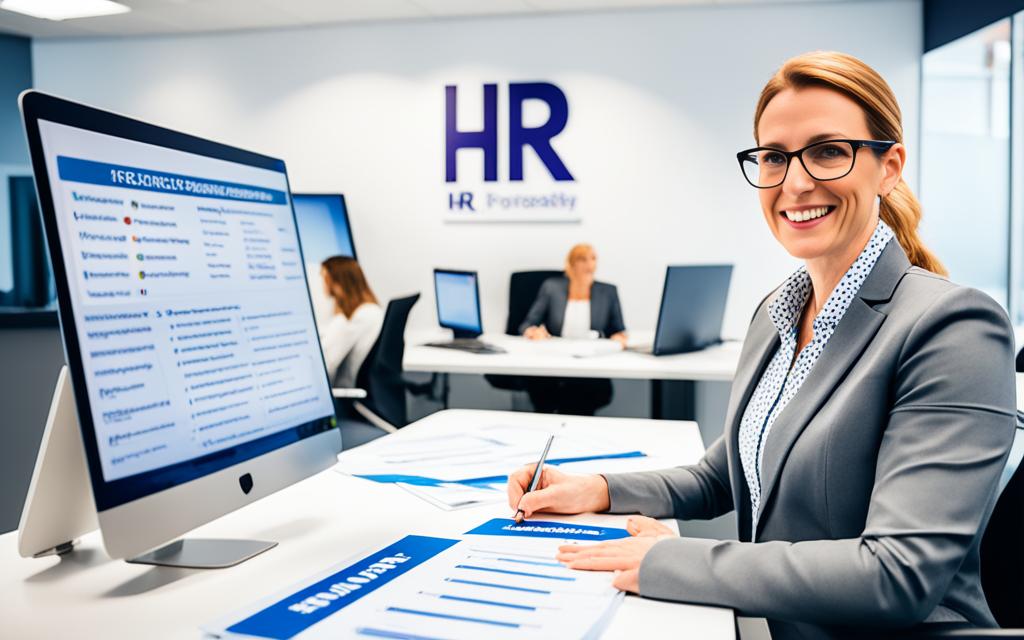As small businesses in the UK strive to create inclusive and supportive work environments, the question of how to best support employees during maternity leave becomes crucial. Paid maternity leave is not only a legal requirement but also plays a significant role in staff retention and satisfaction. But how many weeks of paid maternity leave is truly optimal?
Many small business owners find themselves grappling with this question, unsure of the ideal duration that balances the needs of their employees with the demands of their business operations. Is it 12 weeks? 16 weeks? Or is there a different approach altogether that can maximise the benefits for both the company and its valued employees?
In this article, we will explore the importance of HR support for small businesses UK can provide and focus on finding the optimal duration of paid maternity leave to enhance staff retention and satisfaction in the United Kingdom. We will delve into legal requirements, industry norms, and best practices to help small businesses create a supportive and inclusive environment for their employees during this important time.
Key Takeaways:
- Optimal maternity leave duration is crucial for staff retention and satisfaction in small businesses.
- Paid maternity leave is a legal requirement in the United Kingdom.
- Small businesses need HR support to navigate maternity leave policies effectively.
- Consider a range of factors, such as legal requirements, industry norms, and best practices, when determining the optimal maternity leave duration.
- Creating a supportive and inclusive environment during maternity leave is essential for small businesses.
Outsourced HR Services: Supporting Small Businesses in the UK
For small businesses in the UK, effectively managing HR needs, including policies related to maternity leave, can be a challenging task. With limited resources and expertise in-house, many small business owners find it beneficial to outsource HR services to specialised companies. Through HR outsourcing in the UK, small businesses can access expert support and guidance tailored to their specific needs. This not only ensures compliance with legal requirements but also fosters a positive work environment for employees.
Outsourcing HR services for small business provides the following key benefits:
- Expertise: HR companies have the knowledge and experience to navigate the complexities of HR management, including maternity leave policies. They stay up-to-date with the ever-changing regulations and best practices to provide accurate guidance.
- Cost-Effectiveness: Hiring an entire HR team may not be feasible for small businesses due to budget constraints. Outsourcing HR services allows small businesses to access high-quality HR support at a fraction of the cost.
- Time Savings: Small business owners have multiple responsibilities and limited time. By outsourcing HR services, they can offload the administrative burden and focus on core business operations.
- Tailored Solutions: HR companies understand that each small business is unique. They work closely with the business owners to develop HR strategies and policies that align with their culture and goals.
“Outsourcing HR services allows small businesses to access specialised expertise and support while freeing up time and resources to focus on core operations.”
With outsourced HR services, small businesses in the UK can ensure that their maternity leave policies are comprehensive, fair, and supportive of their employees. Let’s take a look at an example of how an HR company can assist in developing a maternity leave policy:
| Component | Description |
|---|---|
| Leave Duration | Determine the optimal duration of paid maternity leave based on legal requirements, industry norms, and employee needs. |
| Flexible Work Arrangements | Explore options for flexible work arrangements during and after the maternity leave period to support the work-life balance of new parents. |
| Communication | Create a clear communication plan to notify employees of their maternity leave entitlements, documentation requirements, and their rights upon return to work. |
| Supportive Policies | Implement policies that support returning mothers, such as lactation breaks, on-site childcare options, and career development programs. |
By partnering with an HR company, small businesses can ensure that their maternity leave policies align with legal requirements, industry best practices, and the needs of their employees. This not only enhances staff retention and satisfaction but also demonstrates a commitment to creating an inclusive and supportive workplace culture.

Enhancing Staff Retention and Satisfaction: The Optimal Maternity Leave Policies
When it comes to small businesses in the UK, implementing the right maternity leave policies is essential for enhancing staff retention and satisfaction. By offering a supportive and inclusive environment for employees during this important time, companies can reinforce their commitment to their workforce and foster a positive workplace culture.
There are several factors to consider when determining the optimal duration of paid maternity leave for small businesses. Legal requirements, industry norms, and best practices all play a crucial role in creating a comprehensive policy that meets the needs of both the business and its employees.
Legal Requirements: The UK government sets minimum standards for maternity leave, ensuring that employees are protected during their absence. As of April 2021, eligible employees are entitled to up to 52 weeks of maternity leave. This includes 26 weeks of ordinary maternity leave and 26 weeks of additional maternity leave. Therefore, it is important for small businesses to familiarize themselves with these legal obligations and ensure compliance.
Industry Norms: While legal requirements provide a baseline, it is beneficial for small businesses to align their maternity leave policies with industry norms. By researching how other companies within the same sector approach maternity leave, small businesses can gain insights into what is considered standard and expected. This can help them attract and retain top talent, as well as establish themselves as competitive employers in the industry.
Best Practices: In addition to legal requirements and industry norms, small businesses can benefit from incorporating best practices into their maternity leave policies. This includes providing flexible return-to-work options, offering phased returns or reduced hours initially, and implementing effective communication channels to support employees throughout their maternity leave.
“A well-designed maternity leave policy can have a significant impact on staff retention and satisfaction. By offering longer and more flexible maternity leave options, small businesses can demonstrate their commitment to supporting working parents and create a positive work environment.”
Aside from the duration of maternity leave, small businesses should also consider the availability of HR support for employees. By providing access to HR resources and HR advice for small businesses during this period, companies can ensure that employees feel supported and informed throughout their maternity journey.
Outsourced experts can help optimise small business HR systems to streamline the management of maternity leave. Utilising HR software that allows for easy tracking of leave entitlements and seamless communication between employees and HR teams can significantly improve the overall experience for both parties.
To sum up, the optimal maternity leave policies for small businesses in the UK involve a careful balance between legal requirements, industry norms, and best practices. By prioritising the well-being of employees and offering a supportive and inclusive environment, small businesses can enhance staff retention and satisfaction, ultimately driving their long-term success.

| Company | Duration of Maternity Leave | Additional Benefits |
|---|---|---|
| Company A | 12 weeks | Flexible return-to-work options |
| Company B | 26 weeks | Phased returns with reduced hours |
| Company C | 52 weeks | Parenting resources and support groups |
Conclusion
In conclusion, by seeking HR support for small businesses and implementing optimal maternity leave policies, companies can foster staff retention and satisfaction. Small businesses in the UK can leverage outsourced HR services to ensure compliance with legal requirements and provide a supportive environment for employees on maternity leave. By prioritising the well-being of their staff, small businesses can create a positive workplace culture and drive long-term success.
HR support plays a crucial role in helping small businesses navigate the complexities of managing their workforce effectively. By partnering with an expert small business HR outsourcing service, businesses can access the knowledge and resources needed to establish fair and inclusive policies, including those related to maternity leave. This ensures that employees feel valued, supported, and empowered during this important time in their lives.
Furthermore, by implementing optimal maternity leave policies, small businesses can demonstrate their commitment to creating a family-friendly workplace. Offering a sufficient duration of paid maternity leave not only complies with legal requirements but also contributes to higher staff satisfaction, improved employee morale, and increased retention rates. It sends a clear message that the company values work-life balance and recognises the importance of supporting employees as they transition into parenthood.

